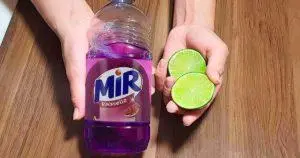Outline
- Introduction
- Importance of using lemon for dish cleaning.
- Benefits of Using Lemon for Cleaning
- Antibacterial properties
- Natural deodorizer
- Preparation for Cleaning
- Gather necessary materials
- Cut the lemon
- Method 1: Hand Washing
- Step-by-step instructions
- Additional tips for effective cleaning
- Method 2: Lemon Soak
- Instructions for soaking dishes
- Benefits of soaking with lemon
- Cautions and Warnings
- Precautions to take while using lemon for cleaning
- Potential risks
- Alternative Uses of Lemon in Cleaning
- Cleaning kitchen surfaces
- Removing stains
- Environmental Benefits
- Lemon as an eco-friendly cleaning option
- Reduction in chemical usage
- Cost-effectiveness
- Comparison with commercial cleaners
- Saving money by using lemon
- Conclusion
- Recap of benefits
- Encouragement to try lemon for dish cleaning
- FAQs
- Can I use any type of lemon for cleaning?
- Will lemon damage my dishes?
- How long should I soak dishes in lemon water?
- Can I combine lemon with other cleaning agents?
- Is lemon cleaning suitable for all types of dishes?
2 Consejos para Limpiar los Platos con Limón
When it comes to household cleaning, lemons are a versatile and natural option. From their fresh scent to their antibacterial properties, lemons can effectively clean your dishes while minimizing the use of harsh chemicals. In this article, we'll explore two simple yet effective methods for cleaning dishes with lemon, along with their benefits and precautions.
Benefits of Using Lemon for Cleaning
Lemons are packed with citric acid, which gives them powerful antibacterial and antiseptic properties. When used for cleaning, they can help eliminate germs and bacteria from your dishes, ensuring a hygienic environment for your meals. Additionally, the fresh scent of lemon serves as a natural deodorizer, leaving your dishes smelling clean and fresh.
Preparation for Cleaning
Before you begin cleaning your dishes with lemon, gather the necessary materials. You'll need fresh lemons, a knife for cutting, a bowl or sink for soaking, and a scrub brush or sponge for washing.
Start by cutting the lemon in half to expose the pulp and juice. This will make it easier to extract the lemon's cleaning properties.
Method 1: Hand Washing
Hand washing dishes with lemon is a straightforward and effective method. Begin by squeezing the juice of the lemon onto your sponge or scrub brush. Then, scrub your dishes as you normally would, making sure to focus on areas with stubborn stains or residue.
For particularly greasy or grimy dishes, you can add a small amount of salt to the lemon juice to create a natural abrasive. This will help loosen stuck-on food particles and leave your dishes sparkling clean.
Once you've scrubbed your dishes, rinse them thoroughly with water to remove any remaining lemon residue. You'll be left with dishes that are not only clean but also free from harmful bacteria.
Method 2: Lemon Soak
If you have dishes that are heavily soiled or have tough stains, soaking them in lemon water can be highly effective. Fill a sink or bowl with warm water and add the juice of one or two lemons, depending on the size of the container.
Place your dishes in the lemon water and let them soak for 30 minutes to an hour. The citric acid in the lemon will help break down grease and grime, making it easier to wash away.
After soaking, scrub your dishes with a sponge or brush to remove any remaining residue. Rinse them thoroughly with water, and you'll be amazed at how clean and fresh they look.
Cautions and Warnings
While lemon is a natural and effective cleaning agent, there are some precautions you should take when using it. Avoid using lemon on delicate materials such as marble or brass, as the acid can cause damage.
Additionally, prolonged exposure to lemon juice can cause discoloration on certain surfaces, so be sure to rinse your dishes thoroughly after cleaning them.
Alternative Uses of Lemon in Cleaning
In addition to cleaning dishes, lemons can be used for a variety of other cleaning tasks around the house. You can use lemon juice to clean kitchen surfaces, remove stains from countertops or cutting boards, and even freshen up your garbage disposal.
Environmental Benefits
Using lemon for cleaning is not only effective but also environmentally friendly. By opting for natural cleaning agents like lemon instead of harsh chemicals, you can reduce your environmental footprint and create a healthier home for you and your family.
Cost-effectiveness
Another advantage of using lemon for cleaning is its cost-effectiveness. Compared to commercial cleaning products, lemons are inexpensive and readily available. By incorporating lemons into your cleaning routine, you can save money while still achieving sparkling clean dishes.
Conclusion
In conclusion, cleaning dishes with lemon is a simple and effective way to maintain a clean and hygienic kitchen. With its antibacterial properties, fresh scent, and natural affordability, lemon is an excellent choice for eco-conscious consumers looking to minimize their use of chemical cleaners. So why not give it a try and see the difference for yourself?
FAQs
- Can I use any type of lemon for cleaning?
- Yes, any type of lemon will work for cleaning purposes.
- Will lemon damage my dishes?
- No, lemon is safe to use on most dishes, but avoid using it on delicate materials like marble or brass.
- How long should I soak dishes in lemon water?
- It's recommended to soak dishes for 30 minutes to an hour for optimal results.
- Can I combine lemon with other cleaning agents?
- Yes, lemon can be combined with other natural cleaning agents like vinegar for added effectiveness.
- Is lemon cleaning suitable for all types of dishes?
- While lemon is safe for most dishes, it's best to avoid using it on delicate or porous materials.
